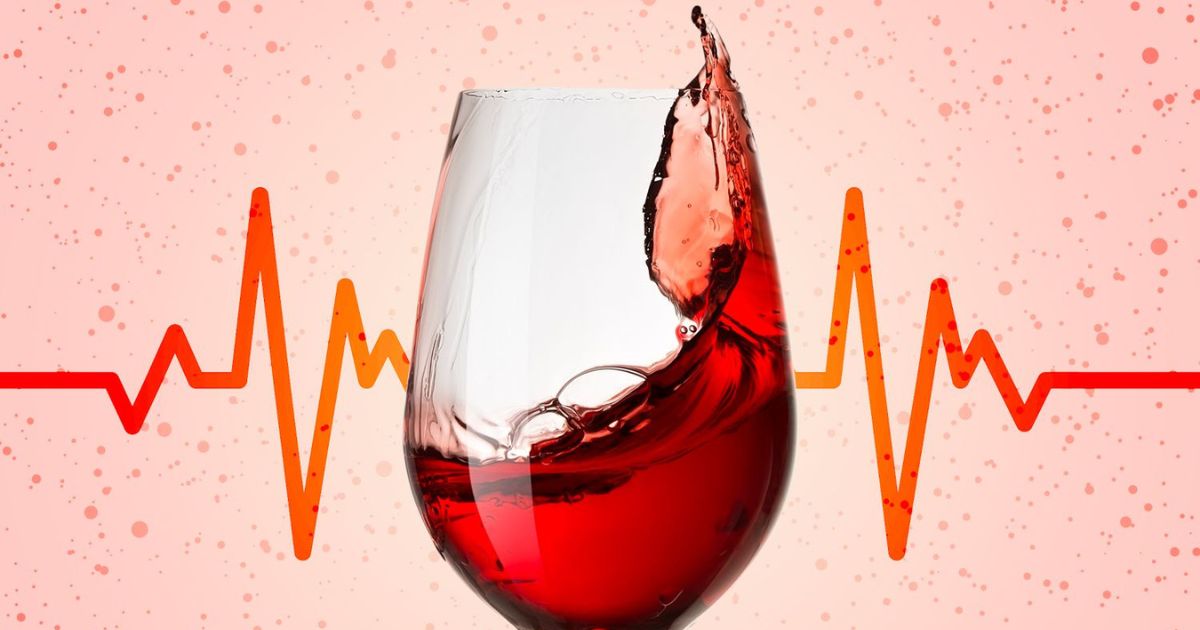For years, red wine has been synonymous with winter warmth and hailed as a seemingly healthy indulgence. Its potential cardiovascular benefits, often attributed to polyphenols such as resveratrol, have been extolled.
However, recent findings challenge the long-standing belief in the heart-friendly nature of red wine and talk about the risks of red wine, asserting that it may be just as detrimental to cardiovascular health as other alcoholic beverages.
The historical association between moderate red wine consumption and a reduced risk of heart disease was predominantly based on observational studies, suggesting a correlation rather than causation between moderate alcohol intake and cardiovascular well-being.
Potential Risks Of Red Wine
This correlation was thought to be linked to antioxidants found in red wine, particularly resveratrol, which demonstrated potential cardioprotective effects in laboratory and animal studies.
However, the touted advantages of resveratrol have not been conclusively demonstrated in human trials. Research on its cardiovascular effects has yielded conflicting and inconclusive results.
Additionally, it remains uncertain whether red wine contains enough resveratrol to impart significant benefits. The required amount of resveratrol for a protective effect would necessitate consuming large quantities of red wine, posing potential risks that far outweigh the perceived benefits.
Moreover, the risks associated with alcohol consumption, even in moderate amounts, cannot be ignored. Alcohol can have adverse effects on various organ systems, particularly the liver. Consumption of alcohol, including red wine, is linked to conditions such as fatty liver disease, inflammation, and in severe cases, cirrhosis.
Alcohol also impacts receptors in blood vessels near the heart, influencing blood pressure regulation. This can lead to high blood pressure and promote arrhythmias or irregular heartbeats.
For individuals with underlying cardiomyopathy, where the heart thickens, any degree of alcohol is considered toxic to heart muscle cells and may lead to heart failure. Additionally, alcohol increases stress hormones like cortisol, which can elevate heart rate and blood pressure.
Furthermore, obtaining potential cardiovascular benefits from red wine can be achieved through alternative, healthier lifestyle choices. A diet rich in fruits, vegetables, and whole grains, coupled with regular exercise, adequate sleep, and stress management, can significantly contribute to heart health without the need for alcohol consumption.
It is crucial to note that for individuals with a history of alcohol-related problems, liver disease, or other health concerns, even moderate alcohol consumption may pose more risks than benefits.
To mitigate potential health risks, guidelines recommend that women should not consume more than one drink per day, and men should limit their intake to no more than two drinks per day.
Moderation remains a key principle, but comprehensive lifestyle measures should be prioritized over specific beverages for maintaining cardiovascular health.
In conclusion, the longstanding belief in the heart-healthy attributes of red wine is being reevaluated in light of recent research. While moderate alcohol consumption, including red wine, was once thought to have potential cardiovascular benefits, the associated risks and the availability of alternative health-promoting measures suggest that red wine may not be the elixir for heart health it was once believed to be.
As we raise our glasses this festive season, it’s essential to consider the broader implications of our choices on overall well-being and heart health.








Leave a Reply
You must be logged in to post a comment.